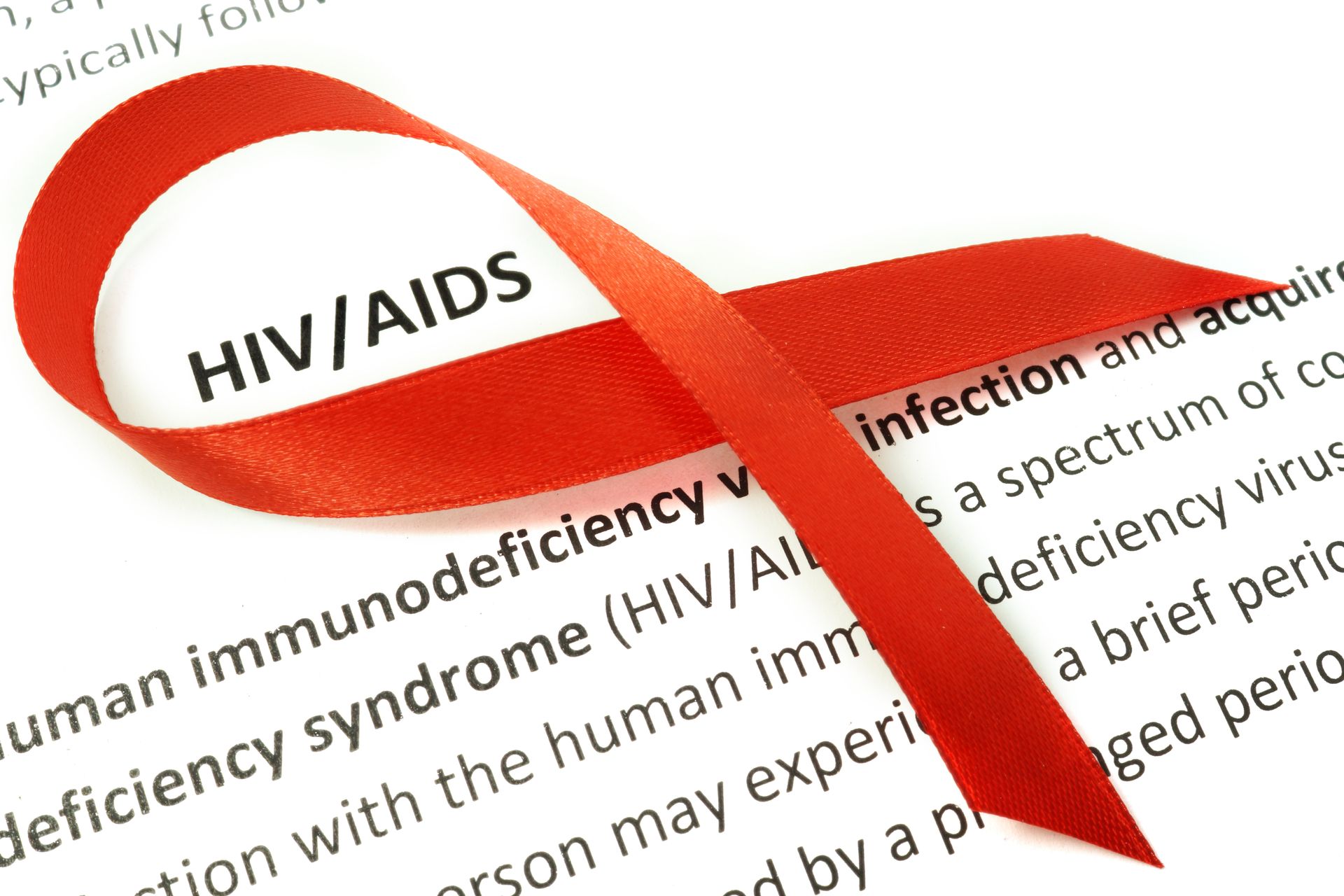What Is HIV/AIDS?

Human Immunodeficiency Virus (HIV) is a virus that attacks your CD4 cells (T-cells), which combat germs and prevent diseases. HIV exists in your blood and some (but not all) bodily fluids, including semen and breast milk, but not sweat, tears or saliva. If left untreated, the virus can replicate and progress to AIDS, leading to a dramatic drop in CD4 cells and opening the door to opportunistic infections and certain cancers.
Unlike some other viruses, the human body can’t get rid of HIV completely, so once someone has HIV, they have it for life. That said, many patients with HIV are able to manage their viral load. With routine testing, early detection and proper medical care, people with HIV can still live long and healthy lives.
How Is HIV Transmitted?
One of the most common transmission methods is through unprotected sexual intercourse, including oral sex. If one sexual partner is infected, the virus could enter the other’s bloodstream and greatly elevate their risk of contracting the virus. Sharing sex toys without cleaning them or without using protection can also increase the chance of transmission.
Sharing syringes is another prevalent cause of transmission. Healthcare workers can be particularly at risk due to the ease with which accidental needle pricks can occur in medical settings.
A mother can transmit HIV to her child during childbirth or while breastfeeding, but antiretroviral therapy (ART) during pregnancy can substantially lower the risk of transmission.
You can’t get the virus from kissing someone with HIV or shaking their hand, nor can a mosquito give HIV to an uninfected individual after feeding on the blood of someone with the infection.
There are far too many harmful myths about HIV transmission. These fallacious and often prejudicial misconceptions can harm HIV-positive individuals, which is why proper education of the public, and especially friends and family of people with HIV, is vital.
Signs You Might Have HIV
- Fever
- Fatigue
- Swollen lymph nodes
- Sore throat
- Headache
- Muscle and joint pain
- Skin rash
- Night sweats
- Diarrhea
- Weight loss
If left untreated, the virus can rapidly progress and turn into AIDS, which can critically weaken the immune system and cause more severe symptoms to appear. These can include:
- Persistent or recurrent fever
- Chronic diarrhea
- Rapid weight loss
- Persistent cough and shortness of breath
- Recurrent infections like pneumonia or tuberculosis
- Neurological symptoms (e.g., confusion, forgetfulness, difficulty concentrating, etc.)
HIV Treatments
Although HIV doesn’t have a cure, early diagnosis and treatment can greatly improve your treatment outcome and help contain the virus’s progression.
Antiretroviral therapy (ART) is a large part of many patients’ success. ART utilizes a robust collection of medications to stop the virus from replicating and help your immune system recover. With strict adherence to your healthcare provider’s prescription plan, you can prevent opportunistic infections and stay healthy. You can even lower your viral load to such a degree that you could nullify your risk of sexually transmitting the virus to partners.
That said, even missing one dose can drastically impact your treatment’s effectiveness. Never discontinue your treatment without consulting your healthcare provider and allowing them to adjust it first. Disruptions in HIV management can result in the virus rebounding and becoming resistant to medications.
You can assist with your treatment’s efficacy by leading a healthy lifestyle, such as eating healthy, managing stress levels, exercising regularly and getting proper sleep. By making the extra effort to maintain healthy habits, you can help bolster the efficacy of your medications and fortify your immune system against the virus.
Testing for HIV/AIDS
Routine testing is recommended, especially for those engaging in high-risk behaviors or individuals in communities with a higher prevalence of HIV.
Get the Medications You Need at a Houston Pharmacy That Has a Proven Record of Compassion and Advocacy for Patients With HIV
At St. Hope Pharmacy, we’ll promptly fill your antiretroviral prescription and help you understand what you’re taking. As a full-service pharmacy, we serve St. Hope Healthcare patients and non-patients alike. Our expert pharmacists will guide you through your treatment plan, explaining daily routines and potential side effects.
We partner closely with other doctors at St. Hope Healthcare to give you comprehensive HIV treatment and monitoring that will help you live better and healthier, even after a positive diagnosis. Contact your nearest St. Hope pharmacy in Bellaire, Conroe, Houston, Sugar Land or Dickinson to schedule a consultation with one of our pharmacists and gain a better understanding of your new prescription today.


